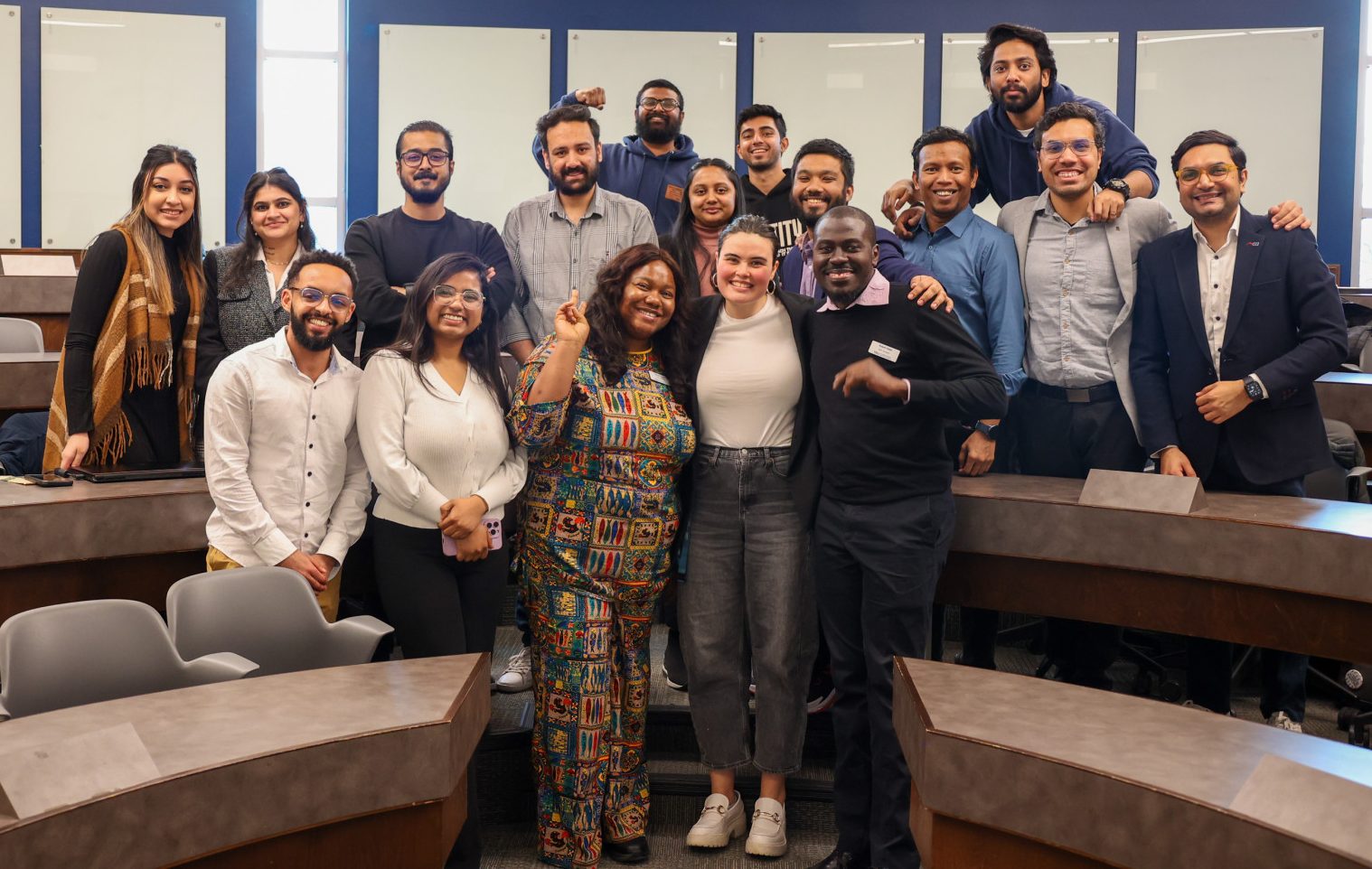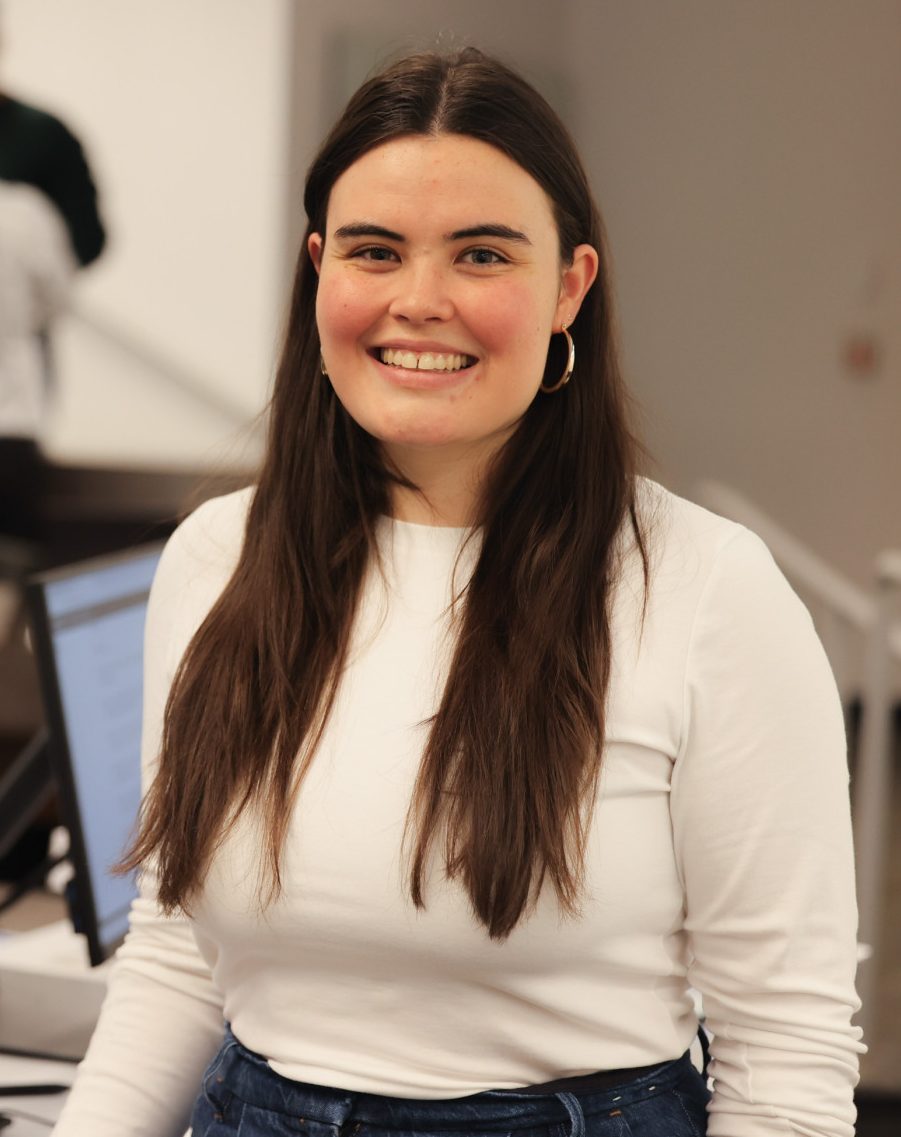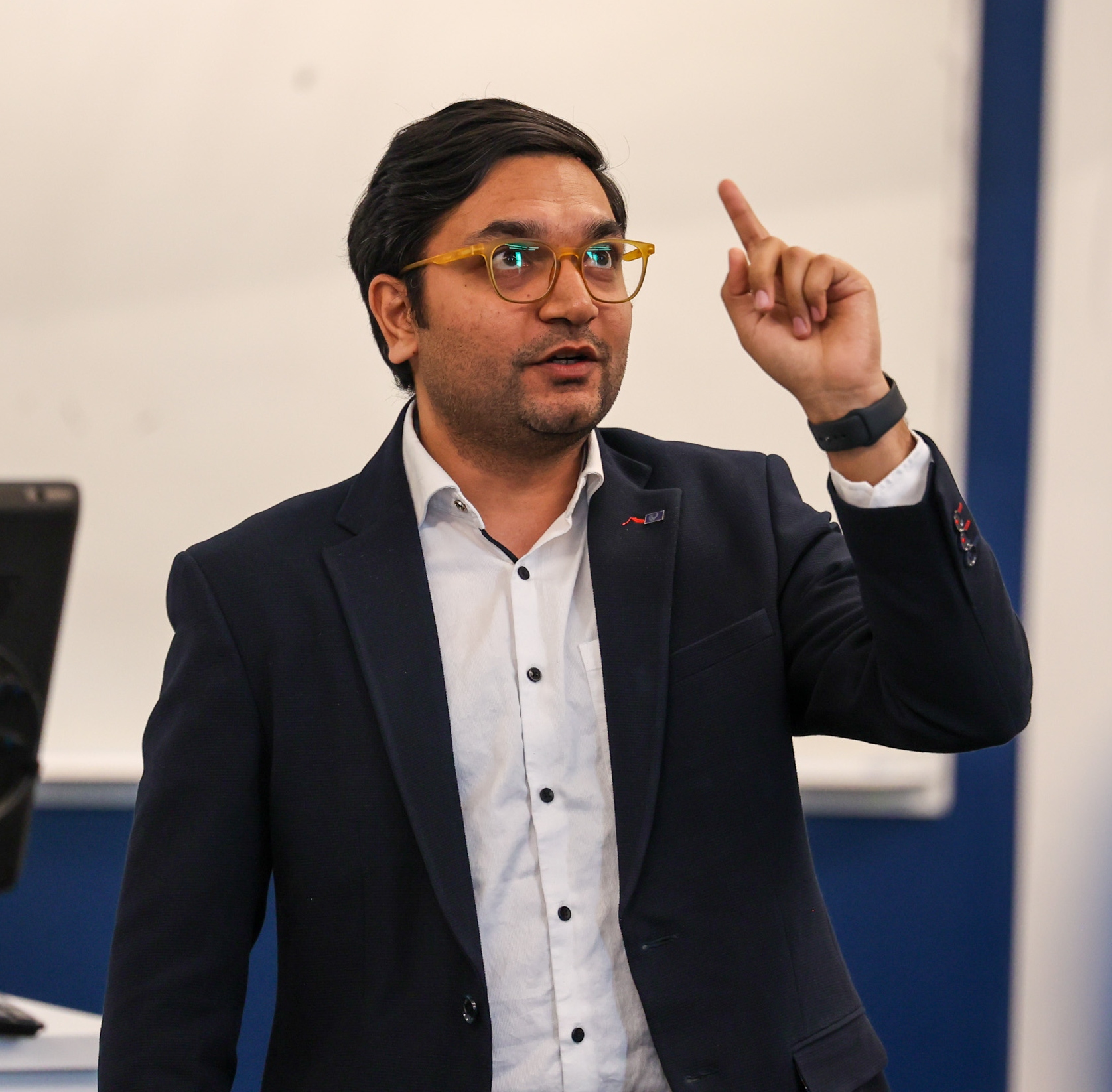
Graduate Professional Success program gives grads a competitive edge
By Élise Fenwick
Imagine stepping out of a graduate program with not only a degree but also a toolkit of real-world skills and a network of industry connections. This is precisely what Thompson Rivers University (TRU)’s Bob Gaglardi School of Business and Economics is offering through its Graduate Professional Success (GPS) program. A groundbreaking initiative, the program provides students with a tangible advantage in a world where soft skills are increasingly essential.

Kate Morford, TRU Gaglardi project manager, launched the GPS program in October 2024.
Spearheaded by Kate Morford, TRU Gaglardi project manager, the GPS program is more than just an add-on; it’s what MBA and GPS student Jesal Thakkar describes as a transformative experience designed to bridge the gap between academia and the professional sphere.
“The program is unique because it brings in industry experts teaching hands-on skill-building and networking exercises that prepare students for the realities of the professional world,” Thakkar says. “What makes it stand out even more is the cohort-based learning model, where students from different levels of experience collaborate and learn from one another.”
The inception of the GPS program
Launched in October 2024 — and open to TRU’s MBA, MEEM and MScEEM students — the program’s inaugural cohort celebrated their graduation in March 2025, marking a significant milestone for Gaglardi and TRU’s first graduating class.
The program’s genesis lies in the acknowledged need for graduates to possess more than just technical expertise. “Over 85 per cent of job success is now attributed to durable skills,” Morford says. “This indicates the increasing need to support students in developing and practicing these skills.”
Students are well aware of the evolving skills required for success and are looking at their universities for support.
“I wanted something beyond just lectures and assignments,” says Teshi Chouhan, a TRU MBA student and GPS graduate. “I was looking for ways to understand the professional space better — how people work, communicate and grow. The GPS seemed like a good opportunity to build that foundation.”
Building skills for the changing workplace

TRU MBA student Jesel Thakkar shares his experience of the program PechaKucha-style during the GPS wrap-up session in March
During the program development process, Morford spent countless hours conducting extensive research and interviews.
“I interviewed faculty, staff, students and the business community to understand what their needs were and to identify gaps in current learner development,” she says. “I also spent a lot of time learning about global workforce needs moving forward. I frequently heard about the need for new graduates to have strong interpersonal skills, emotional intelligence and leadership skills.”
The program’s inaugural iteration addressed professional skills currently earmarked as essential including networking, presentation skills, stress management, goal setting, leadership identity, team trust, negotiation and conflict resolution.
“I essentially took all the data and synthesized it into topics and themes,” Morford says. “That is how each GPS session topic was developed.”
By focusing on the durable skills that students need but typically aren’t available in an academic setting, the GPS program can fill a knowledge gap that’s increasingly important for future professional success.
“The GPS proves that TRU isn’t just about ticking boxes, but actually preparing students to step confidently into their careers,” Chouhan says.
Industry leaders supporting student success
What sets the GPS program apart is the direct engagement industry leaders have with students.
“Community business leaders spoke directly with students at each session,” Morford says. “These leaders spoke about why they believe the featured skill is important and further explained how to develop this skill and walked students through how to practice the skill in real life.”
Students responded to what Chouhan describes as honest, raw and important conversations.

MBA student Hiteshi Chouhan meeting other GPS students at the program kick-off session.
“Sessions like managing stress in the workplace or emotional intelligence in business really stuck with me,” Chouhan says. “These are the kinds of things no one talks about enough, but they’re crucial for any grad student trying to build a real place in the market.”
The program’s impact has been palpable not only for students but also for community partners like John Zubak, managing partner at Zubak and Associates, who attended the final GPS student PechaKucha presentations.
“This was the most impactful session (at TRU) I’ve seen,” Zubak says. “The confidence students exhibited and the personal growth GPS made in their lives was so genuine and real.”
Students echo Zubak’s sentiment, describing the program’s transformative effect.
“I left with a lot more confidence in how I present myself and communicate professionally,” Chouhan says. “It helped me show up more intentionally … because the workplace isn’t just about skills, it’s about people, mindset, leadership and resilience. Programs like GPS shape that part of future business leaders and that’s what we need more of.”
